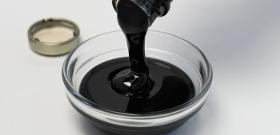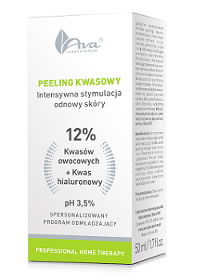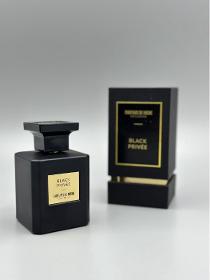- europages
- >
- COMPANIES - SUPPLIERS - SERVICE PROVIDERS
- >
- cane sugar
Results for
Cane sugar - Import export

ILANGA NATURE
Belgium
Standard Demerara- Sugar Cane Ilanga Nature - Licht Muscovado - Light Muscovado- Dark Muscovado - Coffee crystals

TP-EXPORTS
United Kingdom
This versatile crop, thriving in the sun-drenched fields of Brazil, provides the raw material for our range of sugar products, including the highly refined ICUMSA 45 (IC45) and the nutrient-rich Very High Polarity (VHP) sugar, catering to a wide array of needs from culinary applications to industrial fermentation. 1) Color ICUMSA: 45 UI 2) Polarisation: 99.7% 3) Packing: 25kg sacks
Request for a quote
TP-EXPORTS
United Kingdom
Dark Molasses, produced from the second boiling of sugar cane juice, features a rich, bittersweet flavour and a dense mineral profile. This thick, amber-to-dark brown syrup is not only a staple in culinary uses, but also serves as a valuable additive in agricultural feed. Its appealing sweetness and nutritional benefits make it an excellent choice for enhancing the taste and energy content of livestock diets, contributing positively to animal health and feed efficiency. At TP-Exports, our dark molasses is available for delivery in bulk packing, including IBC and drums, or consumer-oriented packaging for use and reseal.
Request for a quote
NAWA PHARMA
France
The specially composed peeling formula contains a complex of five natural acids: blueberry, sugar cane, orange, lemon and maple syrup, rich in vitamins and mineral salts. Systematically used acid peeling visibly improves the condition of the skin, leaving it strongly nourished, smoothed and visibly rejuvenated. It can be used all year round. In summer, you should use a cream with a UV filter after its application.
Request for a quote
FALLYANCE - TRADE
France
Top note: Rum,Sugar Cane, Dark Chocolate Heart note: Coffee, Caramel , Almond Background note:Heliotrope, Sandalwood
Request for a quoteDo you sell or make similar products?
Sign up to europages and have your products listed

DE SMET ENGINEERS & CONTRACTORS
Belgium
Cane sugar is produced by means of technologies rather similar to those used in a beet sugar plant that are also fully mastered by DSEC. Sugar cane is however a totally different plant compared to sugar beet: whereas sugar beet is sowed and can be harvested after +/- 6 months, cane takes longer to grow but grows back after it has been cut and can therefore be harvested several consecutive years (4 to 6) before being replanted. Cane can be cut either manually or mechanically before being directly processed in the mill. Cane plantation location in relation of the plant is of paramount importance so as to reduce sugar losses by the degradation of the plant after cutting as well as to minimize logistic costs. DSEC will select the most appropriate methodology for extracting the juice from the cane after its first shredding. The extraction operation will be performed using mill tandem or cane diffusion while additional mills will press the residual solid (bagasse) in order to increase its fiber content while additional mills will press the residual solid (bagasse) in order to increase its fiber content. Pressed bagasse will be used as fuel for the plant combined heat and power generation that will generally export electricity on the public grid. The choice between mill tandem and diffuser will be highly dependent on plant capacity, cane characteristics, expected extraction performances and plant general concept.
Request for a quote
DE SMET ENGINEERS & CONTRACTORS
Belgium
Sugar beet is a more versatile crop than sugar cane since it can tolerate a wide range of soil and climatic conditions. As for sugar cane, beet molasses is generated in large volumes from the sucrose recovery operation.
Request for a quote
DE SMET ENGINEERS & CONTRACTORS
Belgium
DSEC has dedicated special attention to the design of sugar refinery EPC construction with particular emphasis on energetic efficiency and white sugar quality. A considerable portion of the sugar market is located in areas where neither beet nor cane can be cultivated. Such markets can be fed by large bulk ships with raw cane sugar that needs to be further refined before being commercialized. As the quality of the raw sugar available on the international market varies considerably depending on its origin, DSEC has developed alternative concepts to adapt the refinery design to the feedstock to be processed. The selected alternative for a refined sugar production will be defined after contemplating the necessity of a raw sugar affination (washing) step before the mandatory re-melting operation. Different purification or possibly decoloration technologies will also be analyzed by DSEC so as to optimize capital expenditures in function of feedstock and finished products as well as of the local environment.
Request for a quote
DE SMET ENGINEERS & CONTRACTORS
Belgium
DSEC's commitment on the construction of Bioethanol plants is based on a very specialized technical knowledge of the Ethanol production processes; in this article you will find a more detailed understanding about the Upstream process. In Europe and the US, the existing traditional 1" generation bioethanol plants typically process cereals (maize/corn, wheat, rye, ...) and other starch or sugar containing raw materials (e.g. sugar beet). The raw material initially undergoes crushing (milling for cereals) to reduce the particle size distribution to such a degree that the enzymes enter in contact with the starch molecules in the subsequent steps. During liquefaction with alpha-amylase, starch is dismantled into low molecular sugar units, the so-called dextrines. In the next process step, saccharification, these dextrines are further dismantled into fermentable sugars by means of gluco-amylase. In the fermentation process, these fermentable sugars are partly aerobically transformed, but mainly anaerobically by Saccharomyces cerevisiae (yeast) into biomass and ethanol; sugar containing raw material as e.g. sugar cane can be directly fed into fermentation after crushing. Upstream process groups: - Storage - Cleaning - Milling / Crushing - Mashing - Liquefaction - Saccharification - Fermentation (batch or continuous)
Request for a quote
DE SMET ENGINEERS & CONTRACTORS
Belgium
Thanks to its deep knowledge of all unitary operations related to edible oil, sugar and sugar fermentation processes, De Smet Engineers & Contractors is the ideal partner for assisting investors in developing and implementing biochemical production plants and bio-commodities production facilities. DSEC has already successfully built for international key players a betain and several inulin plants based on their proprietary knowhow. Moreover, DSEC’s experience in implementing cogeneration units built along with facilities for the production of fermentable grade sugar (derived from sugar beet, cane and grains) allows the company to fine-tune the overall process set-up in order to achieve ideal conditions with regard to material and energy flows. Notable examples of bio-based chemicals include non food starch, cellulose fibers and cellulose derivates, tall oils, fatty acids and fermentation products such as ethanol and citric acid for which. DSEC is fully qualified to provide the facility that will efficiently generate the required feedstock on an industrial scale. From a technical point of view, almost all industrial materials respectively their building blocks made from fossil resources can be substituted by their bio-based counterparts: • C2 building blocks: ethanol, acetic acid • C3 building blocks: lactic acid, 3-hydroxypropanoic acid, glycerol • C4 building blocks: fumaric acid, succinic acid, butyric acid, 1-butanol • C5 building blocks: itaconic acid, furfural • C6 building blocks: citric acid, glucaric acid, 5-HMF, adipic acid
Request for a quote
DE SMET ENGINEERS & CONTRACTORS
Belgium
DSEC's commitment on the construction of Bioethanol plants is based on a very specialized technical knowledge of the Ethanol production processes; in this article you will find a more detailed understanding about the Downstream Process. The alcohol in the fermented mash is then concentrated by means of distillation and rectification, before the required water content of ethanol is regulated in the dewatering process. The accrued residues from distillation, the so-called stillage, is first evaporated and then dried to animal feed, the so-called DDGS. However, the production (drying) of DDGS requires a considerable amount of primary energy (e.g. fuel oil or natural gas); therefore, if feedlots are nearby, animal feed will be sold in wet condition, so called WDGS. For sugar cane and molasses the residue, so called vinasses, was returned to the fields as fertilizer- due to sustainability reasons and change in legislation, spraying of vinasses on the fields is mostly forbidden in the meantime. In the past, direct combustion of DDGS turned out to be unfeasible because of procedural difficulties and lacking efficiency (due to the high water content of the stillage). The realisation of a biogas plant could not be achieved in large scale so far because of the enormous quantities of stillage and their high organic stress. Combination of ethanol production with biogas respectively, biomass burning results in different biorefinery concepts or so called next generation technology.
Request for a quote
TP-EXPORTS
United Kingdom
Blackstrap Molasses, the by-product of the third and final boiling of sugar cane juice, is distinguished by its robust flavour and thick, dark consistency. This molasses variant has the lowest sugar content of all grades, making it significantly less sweet but rich in minerals such as iron, calcium, and magnesium. At TP-Exports, our blackstrap molasses is available for delivery in bulk packing, including IBC and drums, or consumer-oriented packaging for use and reseal.
Request for a quoteResults for
Cane sugar - Import exportNumber of results
13 ProductsCountries
Company type